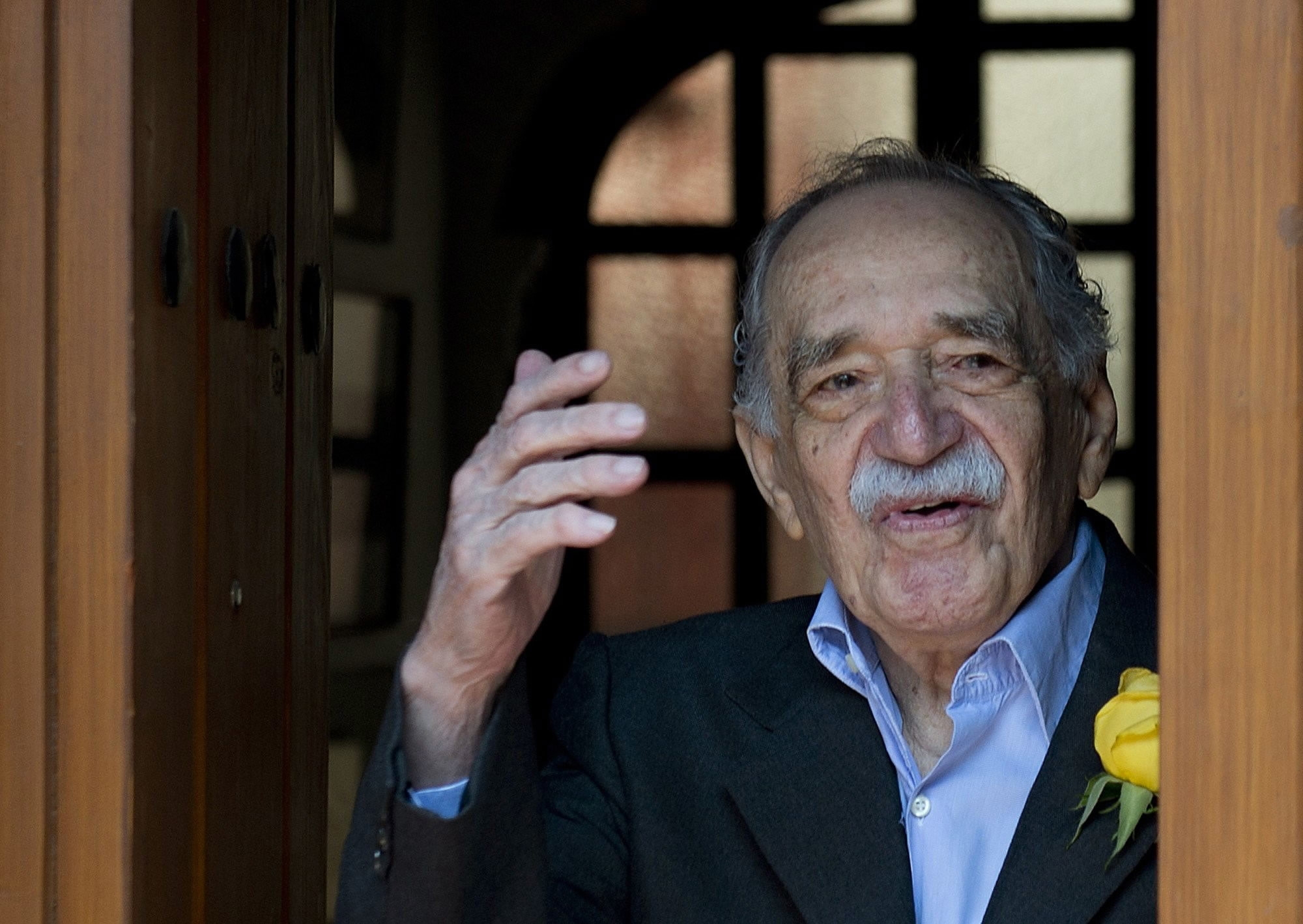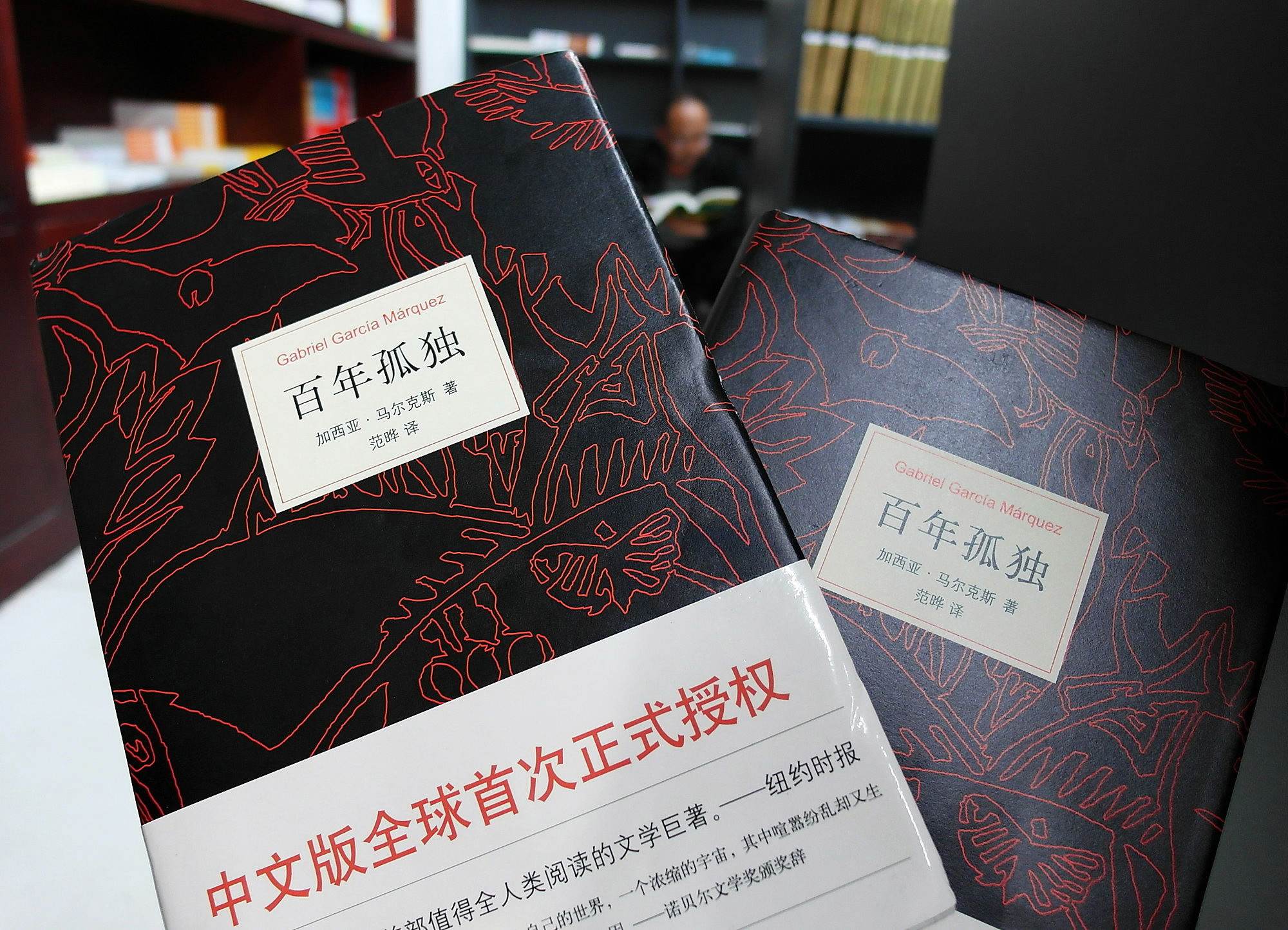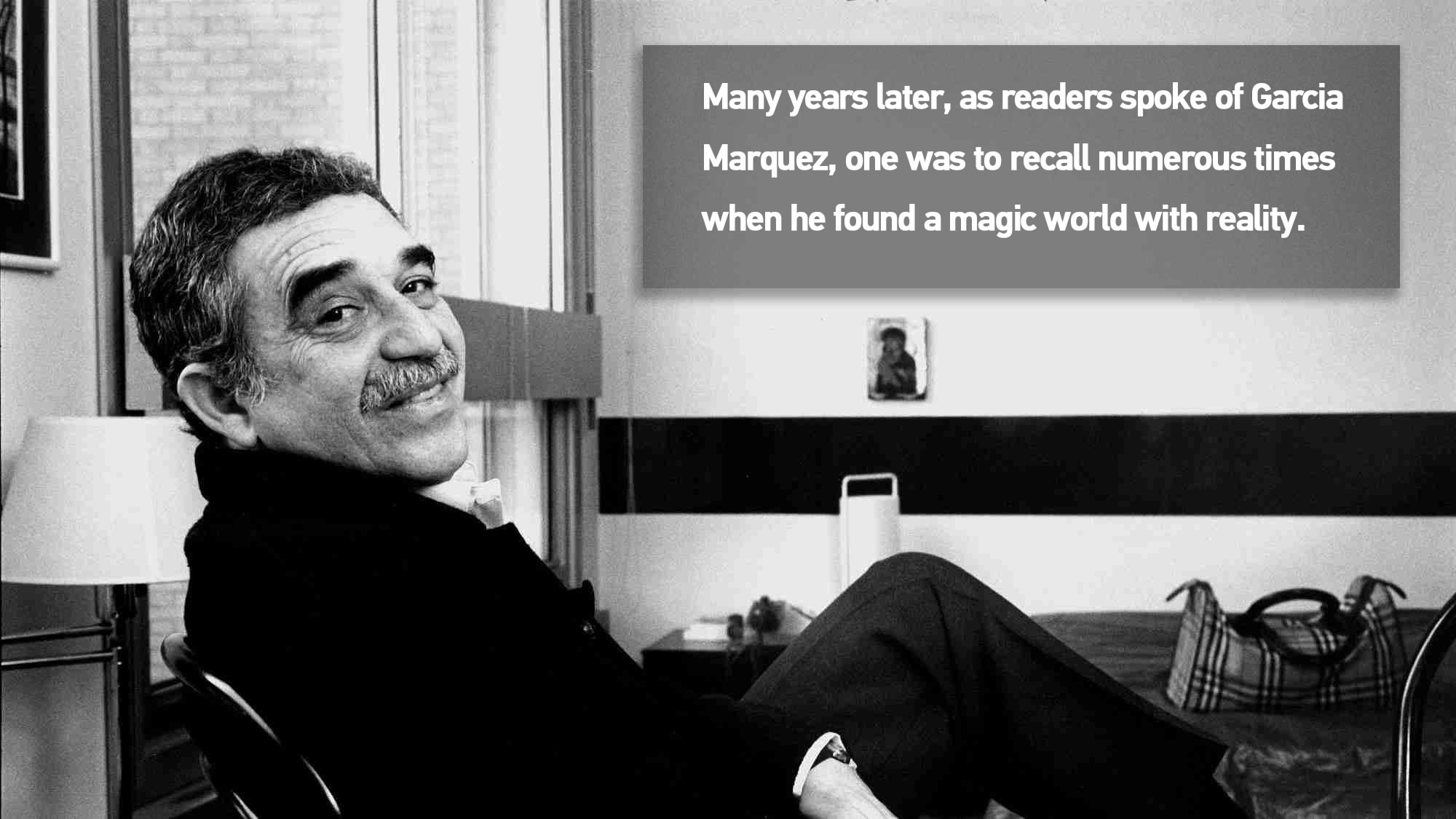Nobel Prize for Literature winner and famed Colombian author Gabriel Garcia Marquez died three years ago this Sunday, but his legacy in China shows no signs of fading.
Garcia Marquez inspired a generation of Chinese novelists such as Jia Pingwa and Han Shaogong. Another Chinese fan is Mo Yan, who followed in Garcia Marquez’s footsteps in winning the Nobel Prize for Literature in 2012.

Gabriel Garcia Marquez waves while coming out from his house to meet the press during his 87th birthday in Mexico City on March 6, 2014. /VCG Photo
“Since the 1960s, no other books have such extensive and long standing influence in the world as One Hundred Years of Solitude,” Mo said.
Marquez inspired a new literary genre in China called the “root-searching school,” which drew on the Colombian author’s fresh narrative skills.
His novels were the best foreign books Chinese readers could get their hands on in the early 1980s.
The young bookworms of the 1980s are today’s established authors in China. Yang Ling, translator of Garcia Marquez’s “Love in the Time of Cholera”, said many Chinese writers were blown away by the Colombian author's literary skills.
“His works are like delicacies to a hungry man,” Chinese writer Mai Jia said, recalling the first time he read a Garcia-Marquez novel.
Writer and literary critic Xu Zechen believes Garcia Marquez liberated the Chinese literary imagination and brought a whole new world to readers.

The authorized edition of Marquez's One Hundred Years of Solitude /VCG Photo
Garcia Marquez was said to have visited China in 1990 but was disappointed by privacy issues. He was reluctant to authorize the publication of his books in the country.
After the mid-1990s, things changed as China joined international copyright conventions.
In 2011, a Chinese publisher released the authorized edition of Garcia Marquez's 1967 masterpiece "One Hundred Years of Solitude".

Copyright © 2017

